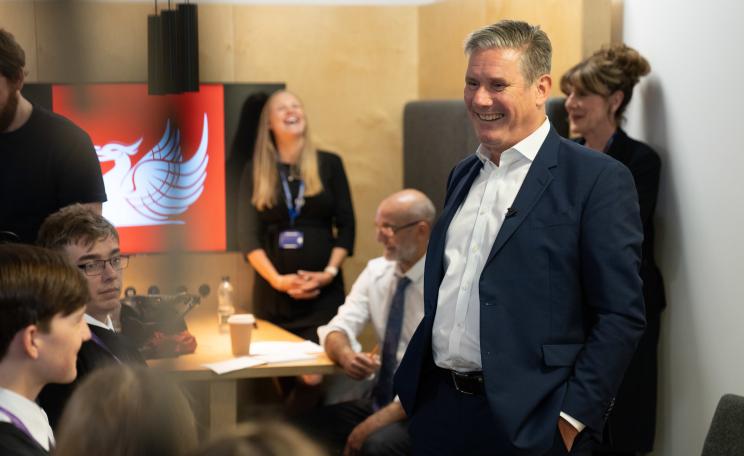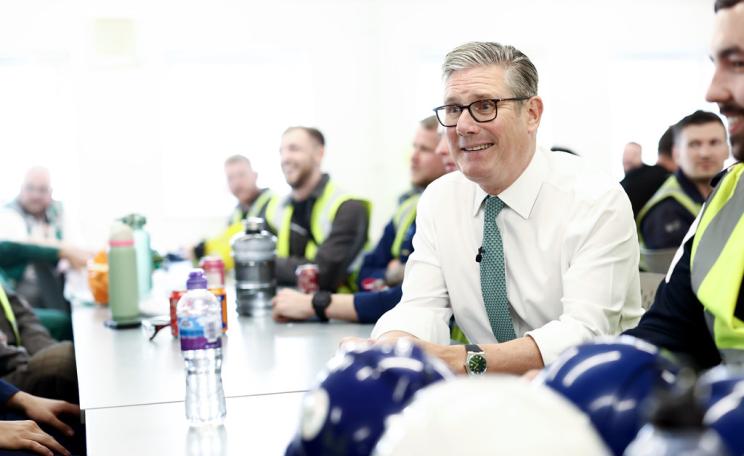Pushing an ecosystem beyond the tipping point is not something that can be patched up – once it’s gone, it’s gone.
We may be seriously underestimating the possibility of “ecosystem collapse” over the next few decades, according to some new research published recently in the scientific journal Nature Sustainability.
This article is a transcript from Dr Meadway's Macrodose podcast. Listen to the episode online.
Read the paper in Nature Sustainability.
The world’s ecosystems are already changing rapidly. Rainforests are being turned into savanna. Savanna is turning into desert. Tundra is thawing out and of course the polar ice-caps are melting.
What the research indicates, using computer models of global and some major regional ecosystems, is that this combination of multiple existing ecological stresses are all working together to make the collapse of ecosystems far more likely and at dates much closer to us than has been previously predicted.
Irreversible
It’s the combination of factors that make the difference – we often reduce the ecological crisis to only climate change, but the threat to systems is also coming from damaging biodiversity losses, resource overuse, and all the other anthropogenic pollutants.
Once these additional factors are accounted for, the ecosystem models go haywire. Systems that were previously expected to collapse in the 2090s from a single factor, like rising temperatures, will, in the worst case scenario, fall apart as early as the 2030s.
This is the importance of taking a holistic view of these changes - understanding each of these stresses together, rather than as individual issues.
As the authors of this new report say, these collapses are essentially irreversible events. Pushing an ecosystem beyond the tipping point is not something that can be patched up – once it’s gone, it’s gone.
And once you have multiple collapses happening, the interactions between them also start to pull the wider system into chaos. This will be a point of no return for the planet, and for all of us who have to live here – an irreversible breach in human and natural history.
Negative
If all of this wasn’t pleasant enough - there’s a growing case for saying some of these tipping points have already been breached. We have already passed into a new period in the Earth’s history as a result of human activity, which geologists refer to as the “Anthropocene”.
Rapid climate change is the best-known element in this new geological period, but massive biodiversity loss in what is likely to be the world’s sixth known mass extinction event is a major element. Worsening chaos and instability are not some passing crisis, but a fundamental reality for all of us from this point onwards.
Pushing an ecosystem beyond the tipping point is not something that can be patched up – once it’s gone, it’s gone.
It’s an extremely bleak picture. But it’s not one that conventional economic thinking takes much account of – or even is able to take much account of. The conventional economic models of climate change, the “Integrated Assessment Models”, are built around the fundamental idea that everything is reversible in some sense – or, at the very least, some sum of money could be paid to compensate for loss.
That is combined with a doctrinal belief in the power of technological progress. The process of invention and technological change will eventually come up with radically better ways of securing economic growth.
You can see this most obviously in the main IPCC forecasting models for Net Zero, which include an incredibly efficient “negative emissions technology” that can magically remove carbon from the atmosphere - such a technology or technologies doesn’t yet exist.
Instability
Dealing with climate change in this worldview - in the worldview of mainstream economics - becomes an issue only of trade-offs: how much expense and growth do we sacrifice today, given our forecasts of damage from climate change tomorrow?
But if tipping points are real – and they seem to be – and ecological damage is irreversible, the basis for this form of economic thinking is destroyed. There is no “trade-off” possible when something has been irreversibly lost – you can’t trade off an extinct species or a collapsed ecosystem. They’re gone.
Instead of thinking about essentially marginal changes to the system, you need to think about big, fundamental shifts in how the economy is organised – and not only to reduce future harm as far as possible, to build a world where the very real costs and misery of future ecosystem collapse and ecological instability is fairly managed, protecting people as far as possible.
Fiscal
At present, we are sort-of doing the first, with various agreements on reducing greenhouse gas emissions globally, but we are barely scratching the surface of the second. The real and serious crisis of adaptation is not being mentioned in the mainstream discussions of the economic crisis.
To pick just the British example, the Bank of England here continues to jam up interest rates when confronted with ecological shock inflation, pushing the costs onto everyday people instead of facing up to the real issues and the new economic and ecological reality.
The British Labour Party is another illustration of the problem. Labour’s original plans for ecological investment were for a world of low interest rates and inflation – if they want to get serious about climate change now, they need to talk about redistribution and adaptation. We need massive investments, and substantial tax reform to equip or at least partially insulate our economies from the worst impacts of ecosystem collapse.
But as Labour seemingly won’t do that, they’re steadily working their way through abandoning every commitment they’ve made thus far, big or small, - under the auspices of the infamous fiscal rules - and are unable to adapt their thinking to these new realities.
Huggers
We are left with institutions that were drawn up in a world where climate change was not a direct and pressing global issue. It was a threat for the future, only making its presence felt at the edges – harsh on small island states, but for the developed world, something that could be largely ignored.
Now, the ecological collapse is here - and getting worse with every passing day. And existing strategies built around state investment and technology-lead decarbonisation are already under strain.
This is a new world. If our institutions don’t catch up soon, it will be the rest of us that are left to suffer in permanently higher inflation and the doom loop of higher interest rates as the accompaniment to wider ecological collapse.
Prime minister Keir Starmer, if that’s where we’re headed, might find he has more than tree huggers to worry about if Labour doesn’t get its act together.
This Author
Dr James Meadway is an economist and former political advisor. This article is a transcript from his Macrodose podcast.







